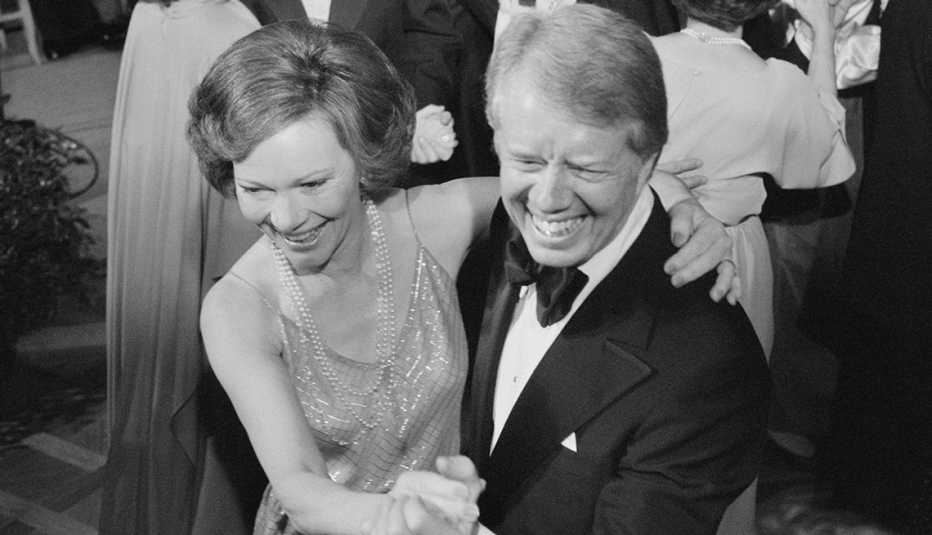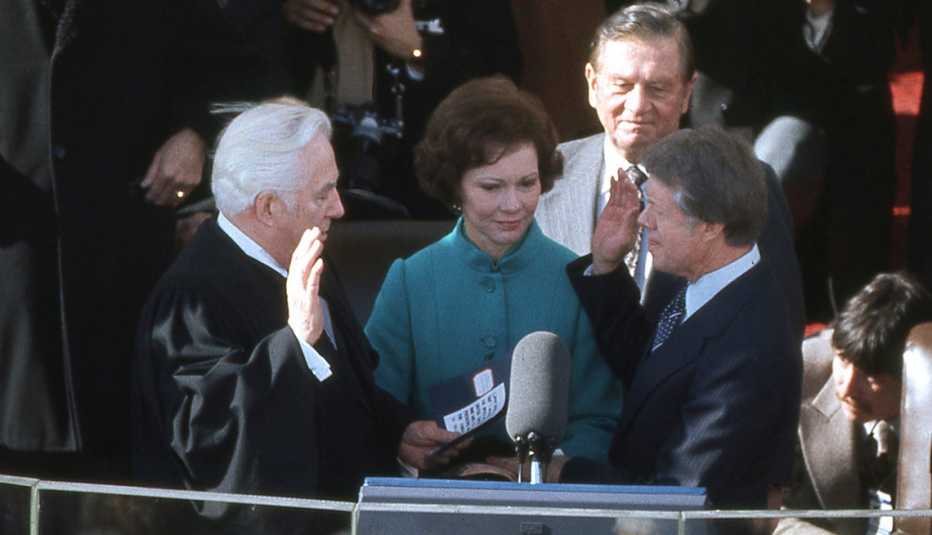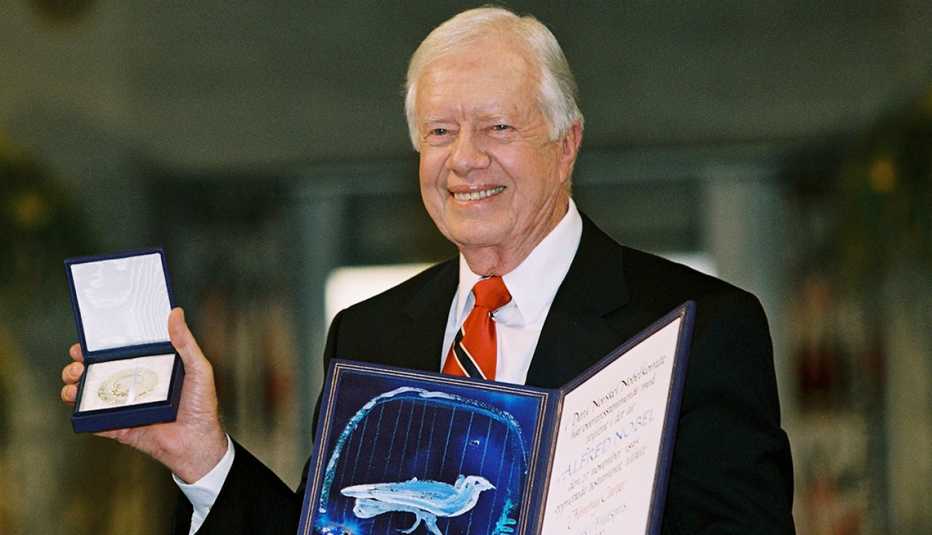AARP Hearing Center
Jimmy Carter never wanted to be a celebrity.
A politician, yes: He wanted to effect change, mostly in compassionate human connection — as governor of Georgia from 1971 to 1975 to end racial discrimination, and as the 39th U.S. president from 1977 to 1981 to bring peace in the Middle East.
But the former peanut farmer, who died at 100 at home in Plains, Georgia, after publicly announcing on Feb. 18, 2023, according to his son James E. Carter III, he was starting home hospice care, saw himself as a man of the people. Long ago, he made arrangements to be buried in front of his home, after a funeral in Washington, D.C., and visitation at The Carter Center in Atlanta. He will be laid to rest with his wife of 77 years, Rosalynn, who died Nov. 19, 2023, at the age of 96.
He was the oldest living president in U.S. history after George H.W. Bush died in 2018 at 94. And he had beat some long odds.
“I have had a wonderful life,” he told reporters in August 2015 after being diagnosed with liver and brain cancer at age 90. “I’m ready for anything, and I’m looking forward to new adventure. It is in the hands of God, whom I worship.”
Beating the cancer odds
But instead of living only a few weeks, as was his prognosis, Carter soon was back teaching Sunday school at Maranatha Baptist Church in Plains, which he’d done since leaving the White House. In December 2015, after receiving treatment with a combination of the new immunotherapy drug pembrolizumab and radiation therapy, he said that his cancer was gone.
James Earl Carter Jr. was born Oct. 1, 1924, the first U.S. president born in a hospital. He grew up on his parents’ farm in Plains, which today has a population of a little more than 700 residents.
An industrious child, Carter was an accomplished carpenter and blacksmith by age 12. In his teen years, on an acre of farmland his father had given him, he grew peanuts, which he packaged and sold.
That allowed him to buy a parcel of tenant housing, which he rented to others.


While attending the U.S. Naval Academy, he fell in love with Rosalynn Smith, a friend of his sister. The two wed in 1946, after his graduation.
“Asking Rosalynn to marry me” was the best decision of his life, Carter said, noting after she passed that his wife was an “equal partner” in everything he accomplished.




































































More From AARP
A Conversation With Jimmy Carter
The 39th U.S. president and humanitarian talks about money and politics, race relations and marriage
The Influence of Music in Jimmy Carter's Life
'Jimmy Carter: Rock & Roll President' film looks at how the rhythms and musicians impacted him
9 Fascinating Presidential Documentaries to Watch Now
Check out these extraordinary glimpses into the seat of American power